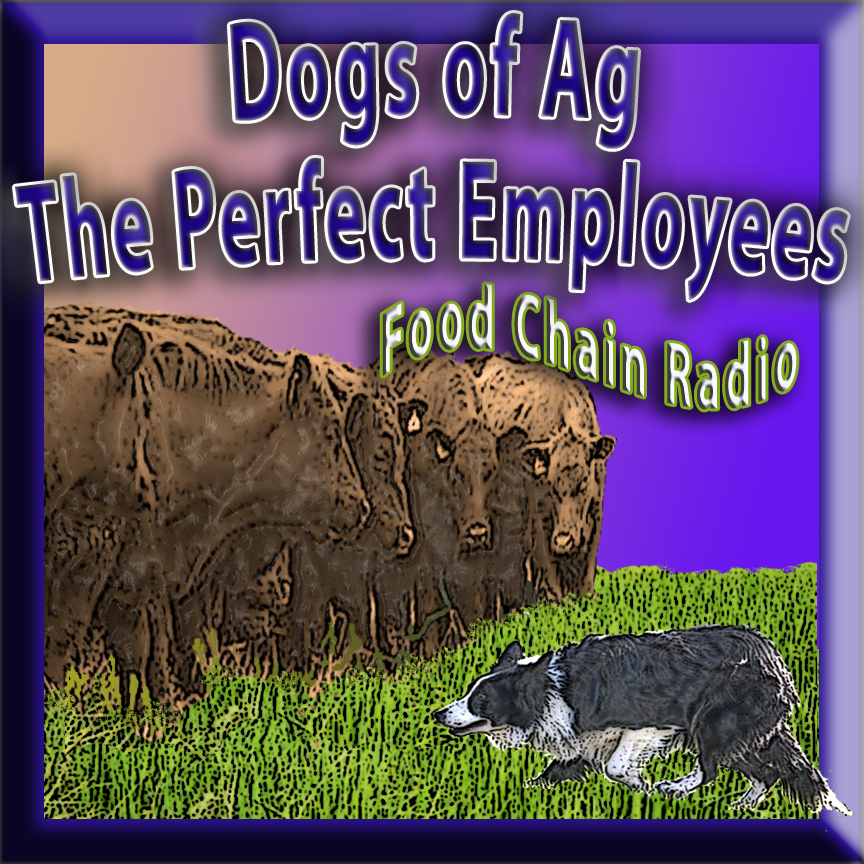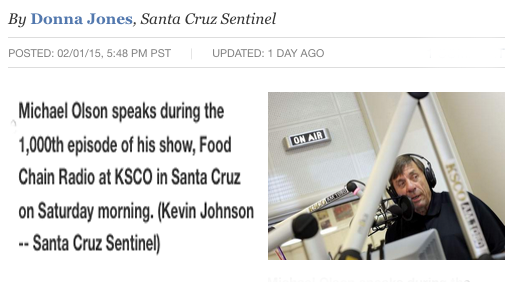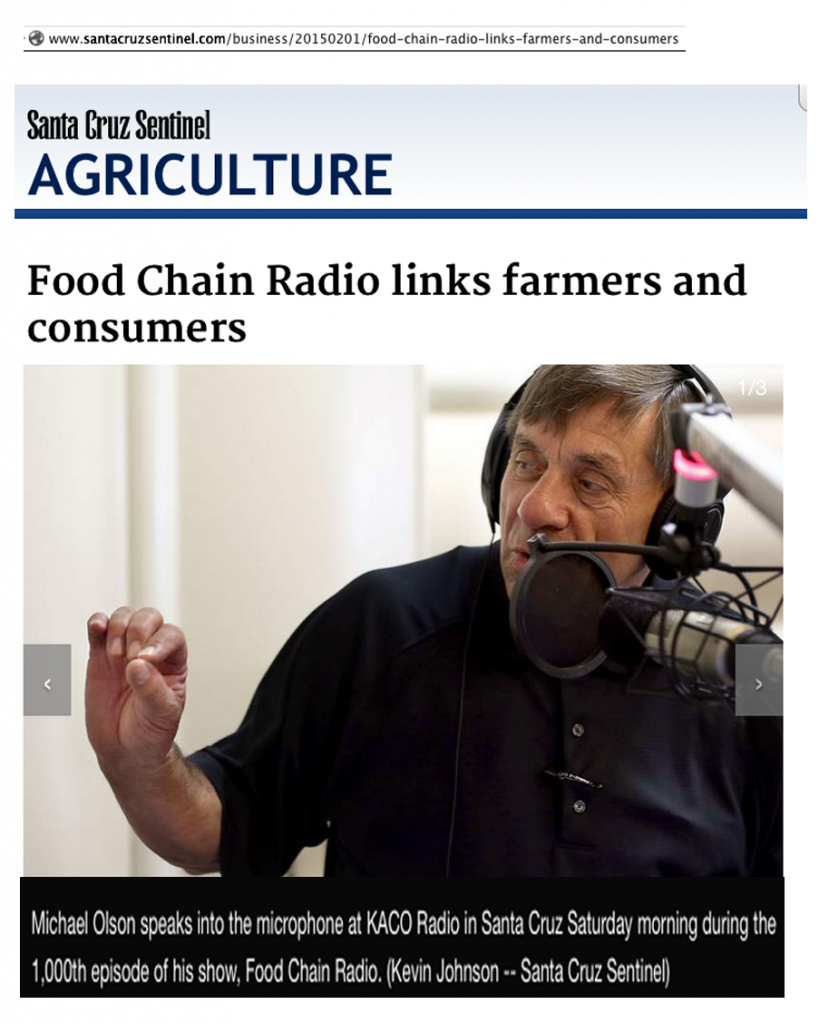Food Chain Radio
January 29, 2015
Herd Dogs
February 5, 2015

SANTA CRUZ >> Growing up in Montana and working summers hoeing weeds on area farms, Michael Olson would look up to see jets flying by thousands of feet overhead and wish he could be aboard one. The U.S. Navy finally took him away during the Vietnam War era.
Later, he picked a field about as far from farming as possible, majoring in English and Chinese literature at UC Santa Cruz. But somehow, Olson’s journey took him back to his agricultural roots.
Saturday, Olson celebrated the 1,000th broadcast of Food Chain Radio, his nationally syndicated weekly show aimed at the people who produce the nation’s food and the people who eat it, which is to say, everybody. “When you think about food, it’s life, everyday life,” Olson said.
“And life is so interesting.”Olson, general manager at KSCO Radio in Santa Cruz, started Food Chain nearly 20 years ago after taking over the station’s “Saturday Morning Agriculture.” He changed the name to reflect the broader audience he hoped to attract.
“People would come up to me and say ‘I like your show, but I don’t have anything to do with agriculture,’” Olson said. “I realized how incredibly removed we are from the source of our food. It makes us vulnerable and it makes farmers vulnerable, politically.”He aims to explain to consumers what it takes to make a living in farming, as well as to look at the wrong turns agriculture sometimes takes.
Recent shows have taken on sustainable meat production, organic versus industrial farming, agricultural technology and the drought.Olson also promotes his ideas about small-scale farming in or near cities, the subject of his book, “Metrofarm.” He questions the idea that the only way to be successful in agriculture is to grow big like the South Dakota couple he interviewed who farm 25,000 acres. “I don’t think it really serves the metropolitan hunger for what’s new, what’s exciting, what’s colorful, what’s local,” Olson said.
“Metrofarm,” published in 1994, marked a turning point in Olson’s life. He had been working as a producer and cameraman for NBC news, when he was assigned a story on survivalists living in the Rogue Valley of Southern Oregon.
Standing on a hill, overlooking a valley divided into small ranchettes devoid of crops, he suggested to a companion that they write a pamphlet on how to make money on a small farm. The companion had an in with a publisher and before he knew it he had a book contract.“Serendipity,” said Olson, explaining his path back to agriculture.
He recalled stepping out of the “dark, dingy recording studio” at UCSC after a session working on his Chinese, and noticing the garden developed by organic farming pioneer Alan Chadwick. “It was a beautiful garden, pretty girls digging in the dirt,” Olson said. “I thought, ‘I must be missing something.’”Reach the author at djones@santacruzsentinel.com or follow Donna on Twitter: @DonnaJonesSCS.

